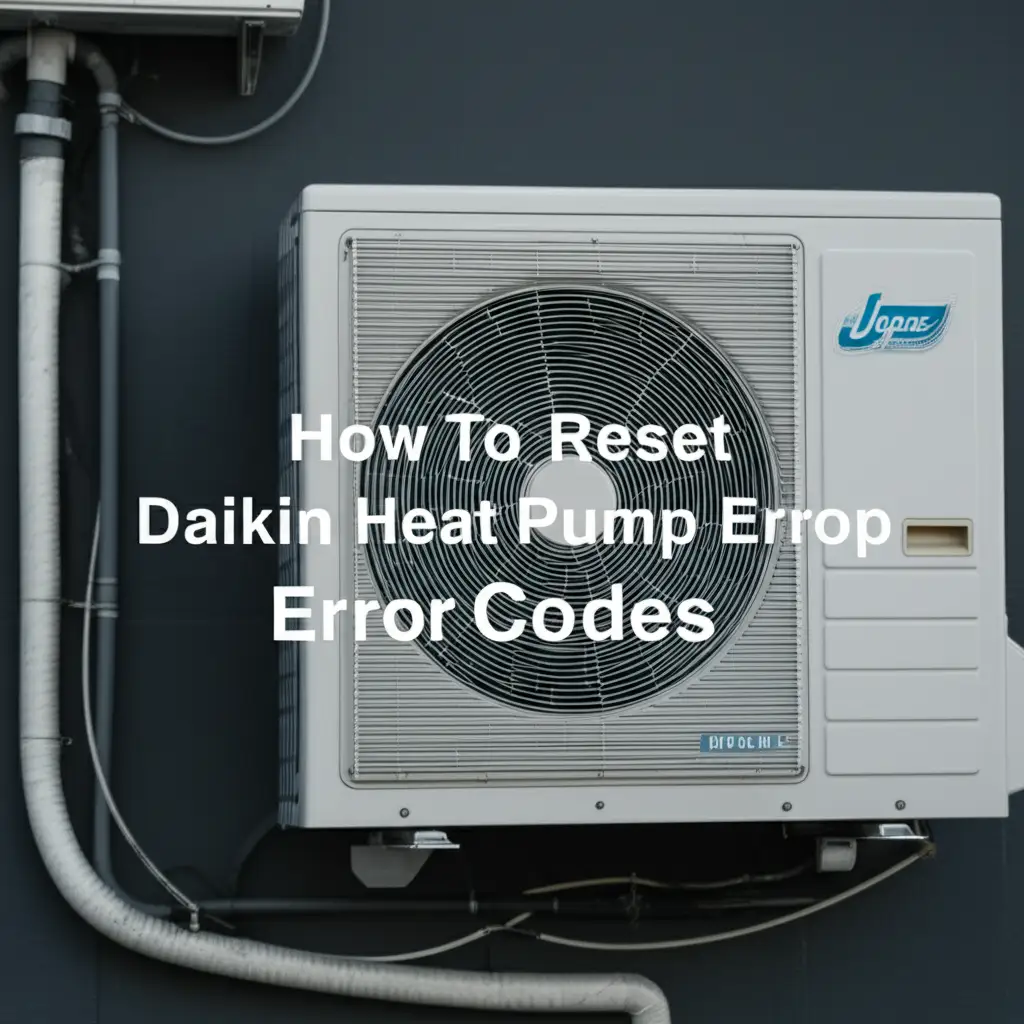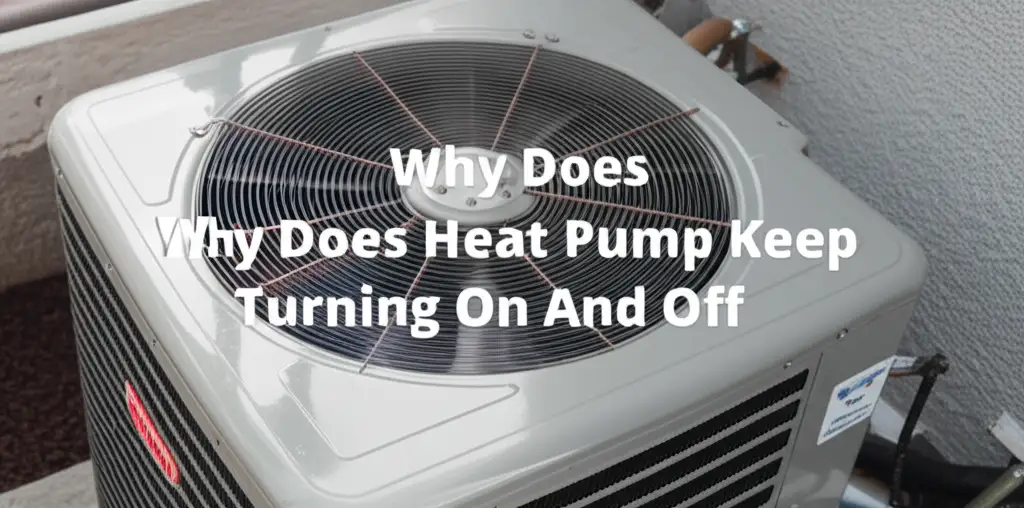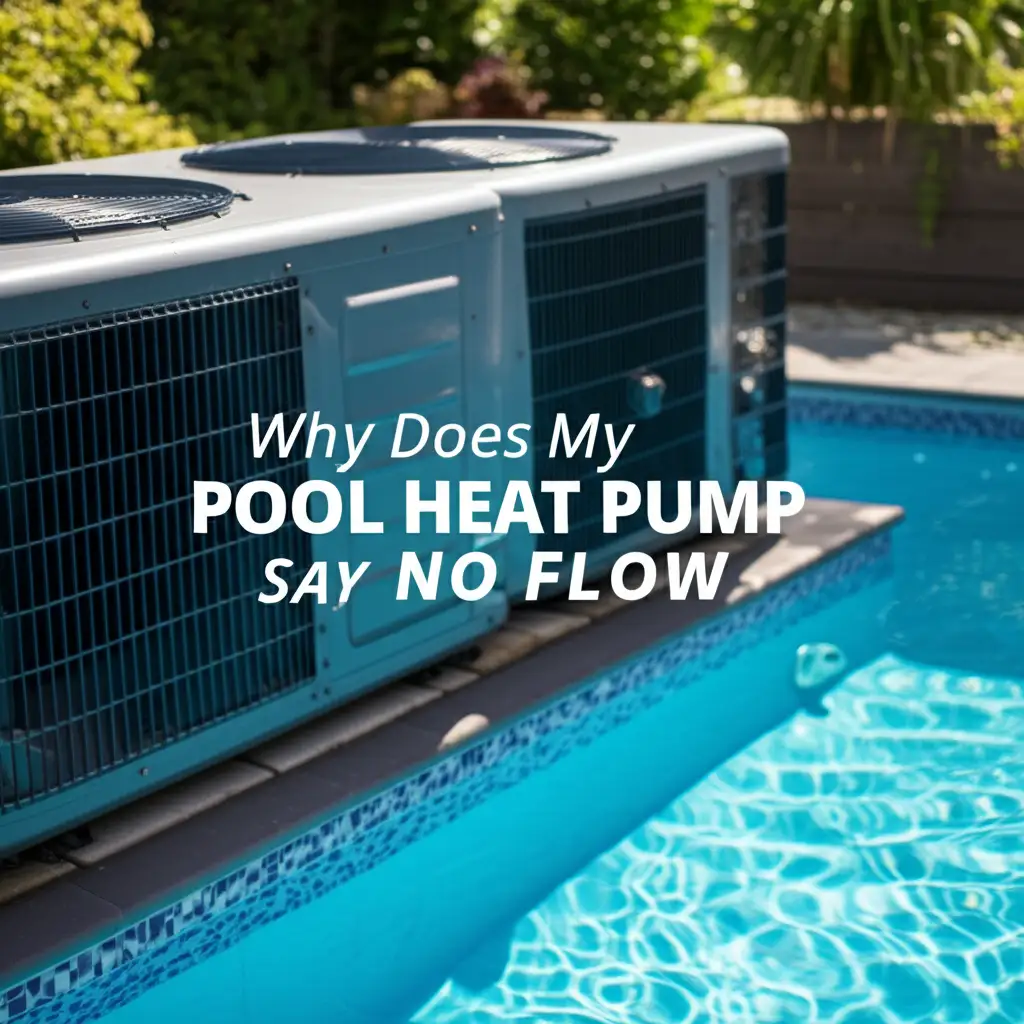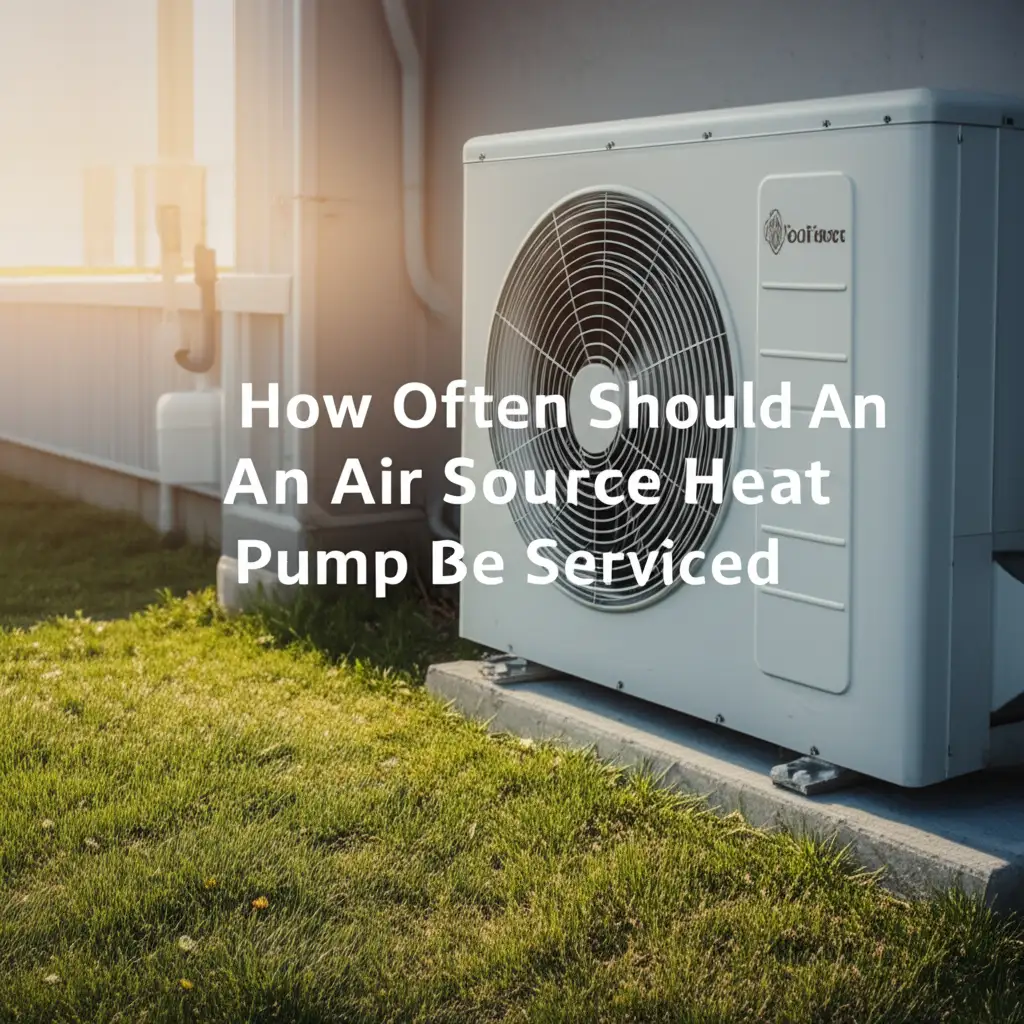· Katria Melrose · Home Heating & Cooling · 13 min read
Why Is My Heat Pump Freezing Up In Winter
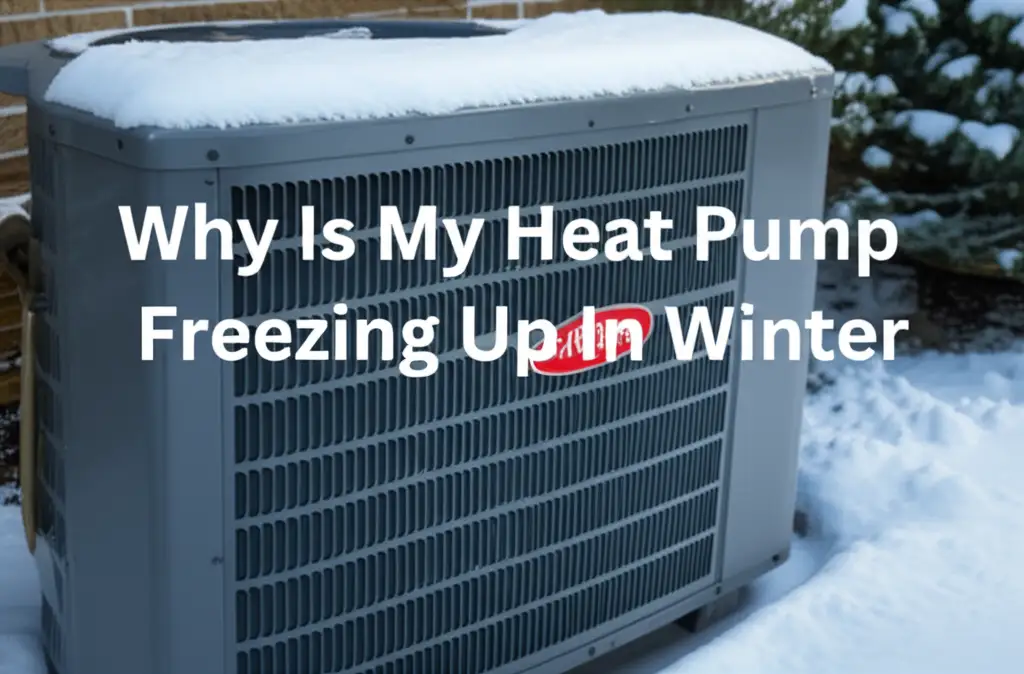
Heat Pump Freezing Up? Understand Winter Ice Build-Up
Seeing ice on your heat pump during winter can be worrying. You rely on this system to keep your home warm, and ice often signals trouble. Many homeowners wonder, “Why is my heat pump freezing up in winter?” It is a common question, especially when temperatures drop. This issue can reduce heating efficiency and even cause system damage if not addressed.
My goal today is to help you understand why your heat pump might be freezing. We will look at normal operation versus a true problem. We will also cover common reasons for freezing, such as airflow issues, low refrigerant, and component failures. You will learn what steps to take and how to prevent future freezing. Staying informed helps keep your home comfortable and your energy bills reasonable.
Takeaway
- Heat pumps naturally form some ice, then melt it with a defrost cycle.
- Excessive ice means a problem, often related to airflow or refrigerant.
- Regular maintenance helps prevent freezing issues.
- Professional help is often needed for complex fixes.
A heat pump freezes up in winter typically due to issues disrupting its normal defrost cycle or heat transfer. Common causes include inadequate airflow from dirty coils or blocked units, low refrigerant levels, or failures in the defrost control board or outdoor fan. These problems prevent the unit from properly shedding ice, leading to excessive build-up and reduced heating.
Understanding Normal Defrost Cycles Versus Actual Freezing
Heat pumps work differently than traditional furnaces. An air-source heat pump extracts heat from outdoor air, even when it is cold. This process can cause ice to form on the outdoor coil. This ice formation is normal under certain conditions.
Your heat pump has a special function called a defrost cycle. This cycle temporarily reverses the system, sending warm refrigerant to the outdoor coil. This melts any ice that has formed. The melted ice then drains away. This process is essential for the heat pump to operate efficiently in cold weather. It happens automatically and usually lasts a few minutes. You might see steam rise from the unit during this time, which is normal.
However, a problem arises when the ice does not melt properly or forms too quickly. If the defrost cycle fails, or if there is too much moisture, the ice builds up excessively. This excessive ice covers the coils, blocking airflow. When airflow is blocked, the heat pump cannot extract heat efficiently. This means your home will feel colder, and your energy bills may rise. This is when your heat pump is truly freezing up, not just undergoing a normal defrost. You might also notice the unit running constantly without effective heating. Understanding this difference is the first step in troubleshooting the problem. It helps you determine if you have a minor issue or a serious one.
Common Causes of Heat Pump Freezing: Airflow Restrictions
One of the most frequent reasons your heat pump might be freezing up involves airflow restrictions. A heat pump needs proper airflow over its coils to work correctly. The outdoor unit’s coil absorbs heat from the air. If air cannot move freely over this coil, the heat transfer process becomes inefficient. This leads to the coil getting too cold, causing ice to build up faster than the defrost cycle can handle.
Several factors can restrict airflow. Dirty outdoor coils are a big culprit. Over time, dirt, leaves, grass clippings, and other debris can accumulate on the coil fins. This layer acts as an insulator, blocking heat exchange and airflow. I always make sure to check my outdoor unit regularly for any visible grime. Cleaning your heat pump coils can greatly improve its performance and prevent freezing. You can learn more about how to clean your heat pump coils to avoid this problem.
Obstructions around the outdoor unit also reduce airflow. Snow, ice, leaves, or even shrubs too close to the unit can block vents. Always ensure there is at least two feet of clear space around your heat pump. If heavy snow falls, gently clear it away from the unit. A faulty outdoor fan motor or a damaged fan blade can also reduce airflow significantly. The fan pulls air across the coil. If it runs slowly or stops, air does not move, leading to ice formation. These issues prevent your heat pump from operating effectively, making it prone to freezing. Maintaining clear surroundings and clean coils helps your heat pump run efficiently, especially in winter.
Common Causes of Heat Pump Freezing: Low Refrigerant
Low refrigerant levels are another major cause of a heat pump freezing up. Refrigerant is the substance that absorbs and releases heat as it moves through your system. It transfers heat from the outside air into your home during winter. If the refrigerant level is too low, the system cannot properly absorb heat. This causes the outdoor coil to get unusually cold.
When the coil gets too cold, any moisture in the air will freeze solid on its surface. This ice builds up quickly because the system cannot transfer heat efficiently enough to keep the coil above freezing, even with a functioning defrost cycle. A common reason for low refrigerant is a leak in the system. Refrigerant circulates in a closed loop. It does not get used up like fuel. So, if your levels are low, it means refrigerant has escaped somewhere.
Finding and fixing refrigerant leaks requires professional help. A technician uses specialized tools to locate the leak, repair it, and then recharge the system with the correct amount of refrigerant. Simply adding more refrigerant without fixing the leak is a temporary solution; the problem will return. A heat pump operating with low refrigerant often struggles to heat your home. You might notice that your heat pump blows cold air in winter, which is another sign of a refrigerant issue or other system problem. This not only causes freezing but also dramatically reduces your heat pump’s efficiency and increases your energy bills. Addressing low refrigerant promptly is crucial for your heat pump’s health and your home’s comfort.
Common Causes of Heat Pump Freezing: Malfunctioning Components
Even if airflow is good and refrigerant levels are correct, individual components can fail, causing a heat pump to freeze. Several specific parts play critical roles in preventing ice buildup. If any of these malfunction, your system can develop significant ice.
The defrost control board is a key component. This circuit board monitors outdoor temperature and coil temperature. It decides when to initiate and terminate the defrost cycle. If the board fails, it might not trigger the defrost cycle at all. It could also activate it too late or end it too soon. Any of these scenarios leads to excessive ice accumulation on the outdoor coil.
Defrost sensors are another critical part. These sensors measure the temperature of the outdoor coil. They send this information to the defrost control board. If a sensor gives a faulty reading, the board might not get accurate data. For example, a faulty sensor might tell the board the coil is warmer than it actually is. This prevents the defrost cycle from starting when it should, allowing ice to build.
The reversing valve is responsible for switching the flow of refrigerant. During a defrost cycle, it temporarily reverses the flow to send hot refrigerant to the outdoor coil. If the reversing valve sticks or fails, the defrost cycle cannot function properly. Hot refrigerant will not reach the outdoor coil, and the ice will not melt. This issue often results in a heat pump that struggles to heat your home or switches between heating and cooling erratically. Troubleshooting these component failures usually requires a certified HVAC technician. They have the diagnostic tools and knowledge to identify which part has failed and replace it. Addressing these issues quickly prevents further damage and restores your heat pump’s proper operation.
Environmental Factors and Heat Pump Freezing
While many freezing issues stem from mechanical problems, environmental factors can also contribute significantly to a heat pump freezing up. Understanding these conditions helps differentiate a normal defrost from a system problem. Heat pumps naturally form some frost or light ice on their outdoor coils in certain winter conditions. This is part of how they work.
Persistent cold temperatures combined with high humidity create the perfect storm for ice buildup. When the outdoor air temperature hovers just above freezing (around 30-40 degrees Fahrenheit) and the humidity levels are high, moisture in the air readily condenses and freezes on the cold outdoor coil. This happens more intensely than in very dry, cold conditions. The unit is working hard to extract heat, and moisture sticks to the coil. While your defrost cycle is designed to handle this, prolonged exposure to these conditions can challenge it. The heat pump might struggle to keep up with the rate of ice formation.
Very low temperatures can also affect a heat pump’s performance. As outdoor temperatures drop significantly, the heat pump needs to work harder to extract heat. Its efficiency can decrease. While modern heat pumps are designed to operate well in cold climates, extremely low temperatures (e.g., below 10-15 degrees Fahrenheit) can lead to more frequent defrost cycles or, in some cases, difficulty in completely melting ice if another underlying issue exists. You might notice your system switching to auxiliary heat more often. Understanding how an air source heat pump works in winter conditions helps to set realistic expectations for its performance. Sometimes, what looks like a freezing problem is simply the unit working overtime in harsh weather. However, if ice builds up excessively and does not clear, it indicates an underlying problem that requires investigation.
Steps to Take When Your Heat Pump Freezes Up
When you notice your heat pump freezing up, it is important to take immediate, safe steps. Your quick actions can prevent further damage and help diagnose the problem. First, and most importantly, ensure your safety. Do not touch or try to break off ice with tools, as this can damage delicate coils or electrical components.
Your first step should be to turn off the heat pump. Go to your thermostat and switch the system from “Heat” to “Off” or “Emergency Heat” if available. This stops the unit from running and allows the ice to melt naturally. You can also turn off the power to the outdoor unit at your electrical breaker box for extra safety. Allow several hours for the ice to completely melt. You might need to gently spray the coil with a garden hose (never hot water!) if the weather is not too cold and the ice is stubborn. However, do this only if you are confident you will not cause more ice or electrical hazards.
While the ice melts, inspect the outdoor unit. Look for obvious airflow obstructions. Clear away any leaves, dirt, or snow from around and on the unit. Ensure no shrubs or debris are blocking the fan or coil. Check if the fan is spinning freely once the power is restored. Also, check your indoor air filter. A dirty indoor filter reduces airflow through the entire system, impacting the heat pump’s outdoor coil performance. Changing a clogged air filter is a simple step that can solve many heat pump issues.
If the heat pump continues to freeze up after melting the ice and checking for obstructions, it is time to call a professional. Issues like low refrigerant, a faulty defrost board, or a malfunctioning reversing valve require specialized tools and expertise to diagnose and repair. Trying to fix these yourself can be dangerous and cause more damage. A qualified HVAC technician can accurately identify the root cause of your heat pump freezing and restore its proper operation. For more insights on preventing freezing, consider learning how to keep your heat pump from freezing in winter.
FAQ Section
Why does my heat pump freeze up when it’s not even that cold?
A heat pump can freeze up even in moderate winter temperatures, especially between 30-40 degrees Fahrenheit. This often happens because high humidity combines with temperatures just above freezing, causing moisture to condense and freeze quickly on the outdoor coil. Underlying issues like low refrigerant, dirty coils, or a faulty defrost cycle can worsen this natural tendency, leading to excessive ice buildup.
How often should a heat pump go into defrost mode?
The frequency of a heat pump’s defrost cycle varies based on outdoor temperature, humidity, and runtime. In cold, damp conditions, it might run every 30 to 90 minutes. In milder, drier conditions, it could be much less frequent, perhaps every few hours. A normal cycle lasts about 5 to 15 minutes. If your unit is constantly defrosting or never defrosting, it indicates a problem.
Can a dirty air filter cause my heat pump to freeze?
Yes, a dirty air filter can indirectly cause your heat pump to freeze. A clogged indoor air filter restricts airflow across the indoor coil. This reduces the heat transfer ability of the entire system, including the outdoor unit. When less heat is transferred indoors, the outdoor coil runs colder than it should, making it more prone to excessive ice buildup, especially if the defrost cycle is struggling.
Is it normal to see ice on my heat pump in winter?
Yes, it is normal to see some frost or a thin layer of ice on your heat pump’s outdoor coil in winter. This occurs as the unit extracts heat from cold, moist air. Your heat pump is designed to manage this through its automatic defrost cycle. Excessive ice that covers the entire coil or does not melt after a defrost cycle is not normal and indicates a problem.
What is the average lifespan of a heat pump?
The average lifespan of a heat pump typically ranges from 15 to 20 years. This can vary based on factors like the unit’s quality, how well it is maintained, climate conditions, and how frequently it is used. Regular professional maintenance and addressing issues like freezing promptly can significantly extend its operational life.
Conclusion
Understanding why your heat pump is freezing up in winter is key to maintaining a warm, efficient home. We have seen that while some ice is normal during defrost cycles, excessive buildup points to an underlying problem. Issues like restricted airflow from dirty coils or obstructions, critically low refrigerant levels, or malfunctioning defrost components are common culprits. Addressing these problems promptly ensures your heat pump operates effectively.
Remember, simple maintenance like keeping the outdoor unit clear and changing air filters regularly can prevent many common freezing issues. However, if the problem persists or involves complex system components, professional assistance is essential. Do not delay in seeking help, as a frozen heat pump can lead to higher energy bills and potential system damage. By taking proactive steps and knowing when to call a professional, you can keep your heat pump running smoothly all winter long, providing reliable warmth for your home.
- heat pump troubleshooting
- heat pump maintenance
- winter heating
- HVAC repair
- heat pump issues


